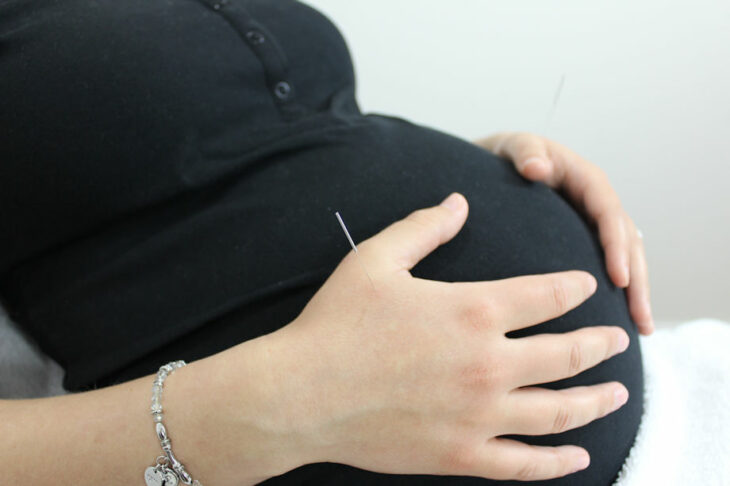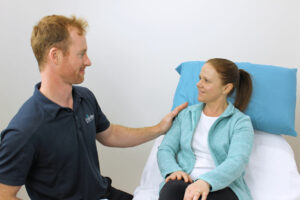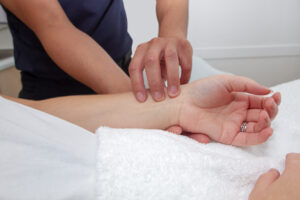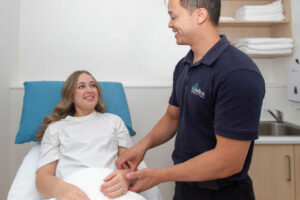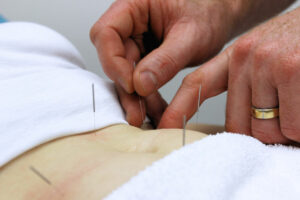It’s a great question!
It’s very likely that you if you are researching whether or not Acupuncture helps improve IVF (In-Vitro Fertilisation), then you will have come across lots of information on this topic and the published information is in my honest opinion, MISLEADING!
Over the last few decades, there have been many studies conducted on whether or not Acupuncture helps improve IVF (In-Vitro Fertilisation) outcomes. The results are mixed, there were some studies that reported that Acupuncture improved IVF outcomes by almost 100% which is staggering.
Then there were other systematic reviews of research that showed that Acupuncture on the day of embryo transfer did not help at all but when multiple sessions of Acupuncture were involved at different stages of the IVF cycle, it DID help compared to when women used IVF without Acupuncture.
After reading through a large number of studies on this topic, I noticed a significant theme in the bulk of the research protocols that were performed when considering whether or not Acupuncture helps improve IVF outcomes.
Keep reading and I will break down my biggest concern with Acupuncture/IVF research and my breakdown of HOW Acupuncture can be used to effectively improve IVF and fertility outcomes.
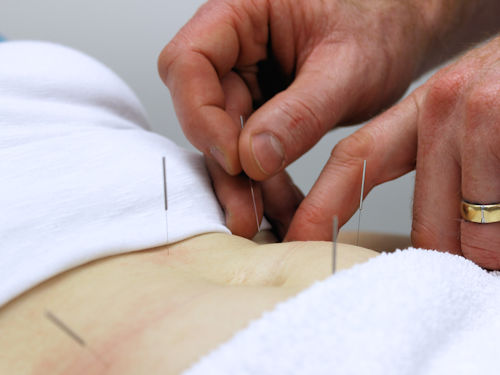
Research in Acupuncture/IVF
I’m a massive fan of the scientific, research-based method of understanding whether or not something is correct. It’s something that I’m incredibly passionate about and can be applied to all areas of life.
When it comes to studying the outcomes of Acupuncture, typically we are looking at RCTs (Randomised Controlled Trials) where there are 2 or more groups of patients that are provided either a legitimate Acupuncture treatment protocol that is standardised for all patients or a ‘Placebo’ treatment where the patient thinks that they are receiving a real Acupuncture treatment but are actually receiving a false, inactive treatment.
A higher quality, more robust form of research evidence is what’s called a ‘systematic review’, when researchers review all of the available RCT reports and summarise the findings.
For the topic of whether or not Acupuncture helps improve IVF outcomes, most RCTs involve 2 groups of patients who both receive the same IVF treatment. The difference is that 1 of these groups receives real Acupuncture and the other group receives a ‘placebo Acupuncture’ treatment where they think that they are receiving real Acupuncture. At the end of the study, both of the groups are assessed in regards to clinical pregnancy rate (managed to fall pregnant) and live birth rates (successful pregnancy).
Now, methodically speaking, this is as good as it gets when comparing whether or not Acupuncture is going to help improve IVF outcomes. There is a massive problem with nearly all the RCTs that I have reviewed and if you aren’t aware of this, then you would likely be misled by research findings that come in as mixed results or even negative results for Acupuncture and IVF outcomes.
My Biggest Concern with Acupuncture/IVF Research
The single biggest issue that I see when analysing RCTs and Systematic Reviews of Acupuncture & IVF research is that the treatment protocol that is being employed is typically 1 or 2 Acupuncture treatments on the day of embryo transfer or at best, 1 treatment in addition to these sessions during the ‘follicular’ or ‘ovulation’ phase of the menstrual cycle.
Now, you might be thinking that this is a controlled method and the results should be accurate. I completely agree with this, the results are accurate for what is being tested. Therein lies the issue though!
The issue that I see with this treatment protocol is that it is too few Acupuncture sessions and too late in the scheme of things. Using an extremely short treatment protocol can only significantly impact cortisol and anxiety levels and there is plenty of research-based evidence to illustrate that Stress & Anxiety have absolutely no impact on IVF outcomes despite it being a common belief.
Think about it this way, if you were seriously competing in a bodybuilding or weightlifting competition, would you leave your preparation to the last minute? Would you train once the day before and then before and after the event and expect great results?
Or would you train for several months at the least in order to achieve the best possible results?
When considering natural treatments to improve fertility outcomes, be mindful that you are working with your body’s natural processes and part of that includes time!
Time To Impact Fertility For Men
I realise that men are typically not tested in IVF studies but it’s still interesting to include men when assessing the treatment protocols used in most studies.
For men, we are especially looking at sperm quantity and quality which are not impacted overnight. In fact, sperm takes 90 days to develop from start to finish. So, any kind of treatment protocol or lifestyle intervention should be implemented for a minimum of 90 days before expecting to see a change in fertility outcomes.
Time To Impact Fertility For Women
Now, for women, there are multiple ways of measuring the state of fertility and as is the case for males, these aren’t changed overnight.
One of the key elements to a successful pregnancy for women is healthy eggs being released from the ovaries. Women are born with a certain number of eggs and these eggs develop and release over the course of their reproductive life.
Interestingly, eggs stay dormant in the ovaries until it’s their turn to potentially mature and be released. In order for eggs to be released, they have to develop as follicles for 90 days before they have an opportunity to be released via ovulation.
With this simple fact in mind, it’s fairly straight-forward to realise that in order to improve the quality of eggs and therefore female fertility, natural treatments like Acupuncture need to be implemented for a minimum of 90 days in order to accurately assess whether or not it has a positive impact on IVF outcomes.
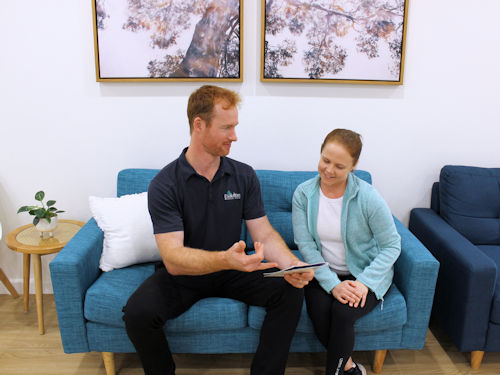
Best Practice Acupuncture/IVF Protocols
Now with the above in mind, I am certain that you will start to appreciate my perspective on why research to date on whether or not Acupuncture improves IVF outcomes is somewhat misleading. It’s no wonder why there have been such inconsistent outcomes, RCTs and Systematic Reviews contradicting each other over time.
With this in mind, when working with patients that are seriously trying to conceive a successful pregnancy and may be trying naturally or in conjunction with IVF technologies, we always recommend a course of treatment of at least 3 months. A 3 month treatment course is in the least going to allow for the amount of time that it takes for sperm to regenerate and for eggs to mature. Anything less than this is simply not long enough to be measurable.
If you want to learn more about how Acupuncture helps improve fertility outcomes, you can check out my article on this topic here.
I can only imagine the difficulties that a treatment protocol like this would cause for researchers. It would be more expensive, time consuming and surely involve lots more issues like participant drop-out or the participants simply becoming aware that they are or are not receiving a ‘real’ Acupuncture treatment which could render an RCT inaccurate and no longer an RCT by definition. It would, on the other hand, lead to an accurate assessment of how much Acupuncture does improve IVF outcomes. This is truly something that I am personally excited to see in the future.
Have You Been Trying To Conceive?
If you’ve read this far, I trust that you have been trying to conceive and have been looking into this topic. I hope this article helps you understand more about the topic in question. Looking beyond what is currently published and looking at what should be studied and the time that it actually takes to make an impact is paramount to making an effective assessment. It’s in the least great to see that the small amount of study of treatment protocols that include slightly more Acupuncture sessions does show an improved outcome compared to protocols with lesser amounts of Acupuncture sessions.
If you have questions about how Acupuncture or natural therapies can assist in your situation, do yourself a favour and give my team a call on (02) 4709 6727 and we look forward to starting the conversation!

